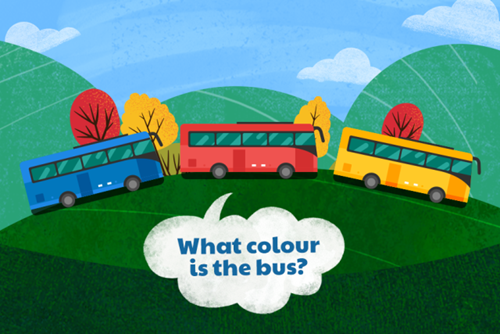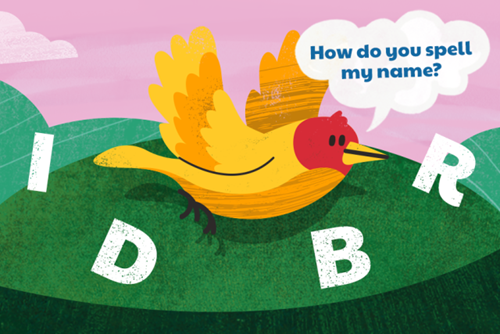As babies grow they continue to build on the communication skills they learned in their first year. They understand more and more and will be growing in confidence at trying out different sounds.
Encouraging and supporting this learning makes all the difference.
At around a year of age your baby may be saying a few words. To begin with it may only be those who spend the most time with them that can understand what they are trying to say.
The praise and positive response your child gets will encourage them to try more words.
Don’t worry if they do not say a word ‘properly’. Repeat back what they have said to them and say the word clearly. For example - your baby might say ‘Duh’ for dog you can say ‘Yes that is a big dog’.
Over time words will become clearer and others will understand them more easily.
Every day activities are really interesting to your baby. They are an opportunity to talk and play with you.
Just talking about what you and / or they are doing means they will hear a lot of words. You can build special moments in your day that you and your baby can both look forward to. Turn off the TV and your phone and have time together playing or looking at books.
Play is the way children learn best – and parents and carers are a baby’s favourite playmate. You don’t need expensive toys - just a few minutes at a time to have fun together.
There is no TV, phone or tablet that can teach a baby more than you!
Dummies & Bottles
Some children may have struggled to get rid of their dummy / bottle at a year of age, as recommended. If your child is still using dummies or bottles it is important to help them stop using them. This will help develop clear speech. It will also help keep teeth and gums healthy.
Switching From a Bottle to a Cup
Weaning Off Dummies
Time With Other Children
Spending time with other children is valuable for communication development. This could be;
In time children learn to share and cooperate with others. They can learn how their actions make others feel. Children do not usually understand sharing until they are 3 or 4 years old – until then they will struggle to see things from others points of view. This is a good skill to practice!
If You Are Worried
Firstly remember that each child will develop at their own pace. Spend as much time as you can playing and talking with your child without distractions – even 5 minutes here and there adds up and can make a big difference.
Try this communication tool - you can identify which stage your child is at and try some of the activities and ideas to support your child's communication development.
If your child attends nursery or a registered childminder, talk to them about your worries – they will be able to work with you to build your child’s skills and advise on any next steps needed.
You can also contact our Just One Number team on the details below to talk through your concerns. The team may ask about your child's hearing and vision to be sure this is not getting in the way of their communication skill development.
This self-care resource is based on the ages and stages of children's communication development.
Answer questions about your child and the results you get will include information most useful to support their language development.

Just chatting to your child is one of the best things you can do for their development!
Why not try talking to them about the things you see every day, like the colour of buses or cars?

When parents read to their children, they introduce them to a world of words, ideas, and stories.
It doesn’t have to be long, complicated books either. In fact, reading anything can help – the back of a cereal packet, an extract from a magazine or any words that happen to be around.
You can contact the Healthy Child Programme by calling Just One Number on 0300 300 0123 or texting Parentline on 07520 631590. Our opening hours are 8am-6pm Monday to Friday (excluding bank holidays) and 9am-1pm on Saturdays.
If you are 11-19 you can text ChatHealth on 07480 635060 for confidential advice from one of our team.
You can speak to other Norfolk parents and carers by clicking our online community forum below.